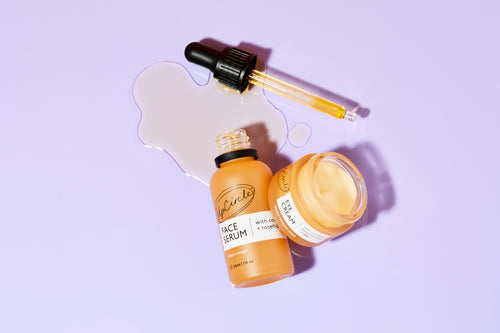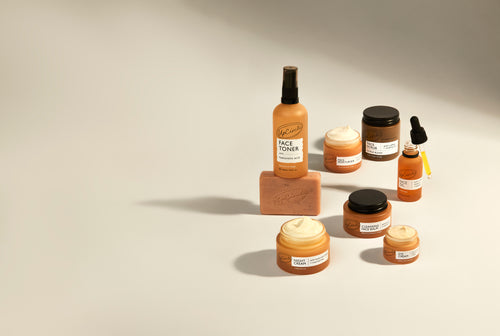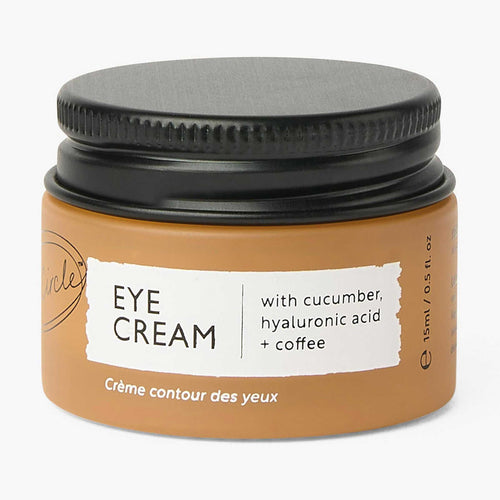As a female founded brand, with a predominantly female team, what it means to be a woman in today's society is something we are passionate about here at UpCircle.
This week we have a guest blog from the girl power duo Hannah and Izzy, the founders of shado mag. Read on for a look into some of the different ways women around the world are creating change. So without further ado...
There is no feminism without intersectionality.
shado is a multimedia platform driving change at the intersection of arts, activism and academia. Our name stands for See. Hear. Act. Do., and unites and celebrates all of the different ways in which people across fields are using their voices and skills to create change.
Our latest print edition focuses on the theme of Global Womxnhood, with the main aim of broadening definitions of what it means to identify as a woman whilst celebrating the different ways women around the world are creating change. In essence, what we are trying to do online, in print and within our community through events and projects, is to carve out space for alternative womanhoods.
We think this might be one of the main problems existing within current movements: a lack of accurate representation which does not account for all avenues of intersectionality.
There is incredible work being done by women across the world, which can often be sidelined in favour of concentrating on a white western framework of the ‘right’ sort of feminism. shado is committed to taking a truly global overview of any given topic. When we turn the lens on womanhood, it has to account for its many different forms across the world.
From female-led protest art in Sudan and sex worker advocacy in Nepal, to photography campaigns exposing the similarities in street harassment from London to Sri Lanka - there are a multitude of ways women are creating change within and beyond their local communities.
Credit @nmhurman
It is this recognition of the mini revolutions starting at a grassroots level within communities around the world that we wanted to spotlight and bring to the fore. From uprisings in Brazil and Sudan to more recent protests in Lebanon and Chile, we are seeing women mobilising – and at frontline of – political movements. These varied and different approaches are what makes the movement so exciting and why believe it is so important to celebrate these different experiences. As Lagos-based researcher Tobi Onabolu states in his piece on ‘Nego-Feminism’, “The strength of feminism lies in its accommodation of its intersections and multiple lived experiences; not from the dominating monologue of one voice.”
We can see the massive failures in so-called feminist systems when there is a lack of inclusivity. Take for example the recent insidious movement spearheaded by the LGB Alliance, which seeks to eradicate trans experiences from conversations around sex and gender – or those movements which seek to invisibilise sex workers through advocating for the criminalisation of sex work. This is becoming an increasingly hot topic in Amsterdam; a city famous for its tolerance of sex work which is being undermined by exclusionary rallyers, all in the appropriated name of ‘feminism’.
There is an urgency of recognising that womanhood and feminism means different things to different people and is constantly shaped and renegotiated by context (political; cultural; personal; geographical etc.) Representation is therefore crucial, which is why we platformed the voices of womxn and men from 38 countries around the world in this second issue.
Connection to a multifaceted topic such as womanhood can only happen if we listen to those who have lived it themselves; they are best placed to discuss and advocate for meaningful change in that space. For us, this also means bringing together people across fields; photographers, poets, artists, activists, researchers and athletes alike. By uniting these voices in collaboration and in one physical space, we believe so much more can be learned and achieved – by listening to, and supporting the work being done across spaces and contexts.

credit @maz_o
We hope that the Global Womxnhood issue will help highlight the work done by those at the frontline of social, political and cultural change; to bring these voices together in one place to to inspire a new generation of changemakers. As written by Sarah Boukhary, a feminist activist from the MENA region, “all issues are women’s issues.”
Our role, as women, is to recognise and uplift other women. The cracks appear when you don’t recognise all women’s movements as equal or, at worst (and as above), exclude some women’s contexts. We should all listen Juno Mac and Molly Smith in their incredible book Revolting Prostitutes – what they call “a book about prostitution written by prostitutes.” They call for empathy and solidarity to take precedence over insular opinions – even if you haven’t lived an experience yourself, it is crucial to align with a worldwide community of womxn. This is what we hope to achieve at shado, through our events, projects – and, of course, the publication itself.
By Hannah Robathan and Izzy Pearce, co-founders of shado
To keep up to date with all things shado - follow us on instagram here and order your copy of issue 02 here.







